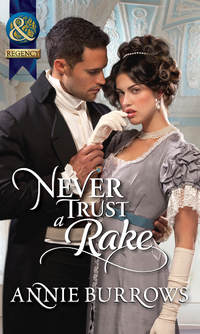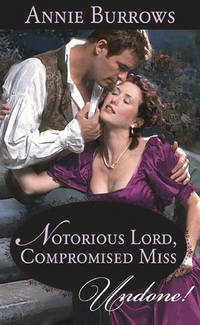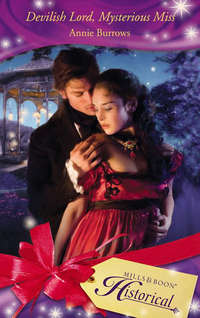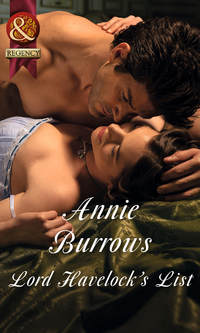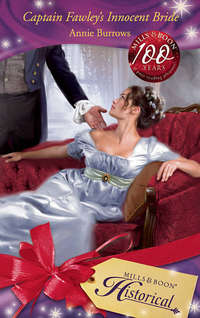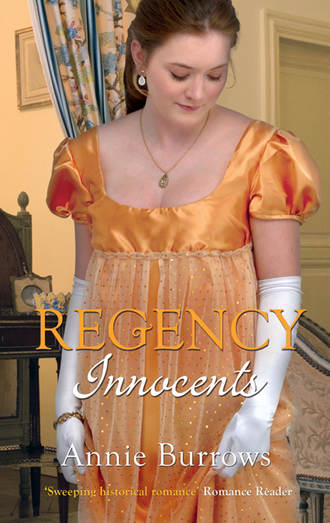
Полная версия
Regency Innocents: The Earl's Untouched Bride / Captain Fawley's Innocent Bride
‘Allow me to be the first to congratulate you,’ a voice purred. Dropping her spoon with a clatter on the table, she looked up to see Mrs Austell hovering over their table, her beady eyes fixed on Felice’s emerald ring. ‘Though I had heard …’ She paused to smile like a cat that had got at the cream, and Heloise braced herself to hear whatever gossip had been noised abroad concerning the Earl and her sister. ‘I had heard that you were going to make an announcement at the Dalrymple Hamilton ball.’
‘Circumstances made it impossible for us to attend,’ Charles replied blandly.
‘Ah, yes, I hear there was some unpleasantness in your family, mademoiselle?’
Laying his hand firmly over hers, Charles prevented her from needing to answer. ‘Mademoiselle Bergeron does not wish to speak of it.’
‘Oh, but I am the soul of discretion! Is there nothing to be done for your poor sister? Too late to prevent her ruination, I suppose?’
‘Oh, you have the matter quite out. The affair is not of that nature. The young man fully intends to marry my fiancée’s sister. Has done for some considerable time. It is only parental opposition that has forced the silly children to feel they needed to run off together in that manner.’
Heloise marvelled that he could appear so unconcerned as he related the tale. Deep down, she knew he was still smarting. But it was this very sang-froid she had factored as being of paramount importance to her scheme. Why should she be surprised, she chastised herself, when he played the part she had written for him so perfectly?
‘A little embarrassing for me to have an escapade of that nature in the family,’ he shrugged, ‘to be sure. But it is of no great import in the long run.’ With a smile that would have convinced the most cynical onlooker, Lord Walton carried Heloise’s hand to his lips and kissed it.
‘Of course I never held to the prevalent opinion that you would make the younger Mademoiselle Bergeron your wife,’ Mrs Austell declared. ‘A man of your station! Of course you would prefer the more refined Mademoiselle Bergeron to her flighty little sister. Though I must warn you—’ she turned to Heloise, a malicious gleam in her eye ‘—that you ought not to make your dislike of Wellington so apparent when you get to London. They idolise him there, you know. If anyone were to catch a glimpse of that scurrilous drawing you made of him …’ She went off into a peal of laughter. ‘Though it was highly entertaining. And as for the one you showed me of Madame de Stael, as a pouter pigeon!’
‘I collect you have had sight of my betrothed’s sketchbook?’
‘Felice handed it round one afternoon,’ Heloise put in, in her defence. ‘When a few ladies connected with the embassy paid us a visit.’
‘Oh, yes! Such a delight to see us all there in her menagerie, in one form or another. Of course, since the one of myself was quite flattering, I suppose I had more freedom to find the thing amusing than others, to whom mademoiselle had clearly taken a dislike.’
At his enquiring look, Heloise, somewhat red-faced, admitted, ‘I portrayed Mrs Austell as one of the birds in an aviary.’
With a completely straight face, Charles suggested, ‘With beautiful plumage, no doubt, since she always dresses so well?’
‘Yes, that’s it,’ she agreed, though she could tell he had guessed, even without seeing the picture, that all the birds portrayed on that particular page had been singing their heads off. If there was one thing Mrs Austell’s set could do, it was make a lot of noise about nothing.
And dare I ask how you portrayed Wellington?’
But it was Mrs Austell who answered, her face alight with glee. As a giraffe, if you please, with a great long neck, loping down the Champs-Elysées, looking down with such a supercilious air on the herd of fat little donkeys waddling along behind!’
‘For I see him as being head and shoulders above his contemporaries,’ Heloise pleaded.
‘Oh, I see!’ Mrs Austell said. ‘Well, that explains it. Have you seen your own likeness among your talented little betrothed’s pages, my lord?’ she simpered.
‘Why, yes,’ he admitted, feeling Heloise tense beneath his grasp. ‘I feature as a lion in a circus, if you please.’
‘Oh, of course. The king of the beasts!’ she trilled. ‘Well, I must not take up any more of your time. I am sure you two lovebirds—’ she paused to laugh at her own witticism ‘—would much rather be alone.’
As soon as you have finished your ice,’ Charles said, once Mrs Austell had departed, ‘I shall take you home. Our “news” will be all over Paris by the morning. Mrs Austell will convince everyone how it was without us having to perjure ourselves.’
He was quiet during the short carriage ride home. But as he was handing her out onto the pavement he said, ‘I trust you will destroy your sketchbook before it does any more damage?’
‘Damage?’ Heloise echoed, bemused. ‘I think it served its purpose very well.’
‘There are pictures in there that in the wrong hands could cause me acute embarrassment,’ he grated. He had no wish to see himself portrayed as a besotted fool, completely under the heel of a designing female. ‘Can I trust you to burn the thing yourself, or must I come into your parents’ house and take it from you?’
Heloise gasped. She had only one skill of which she was proud, and that was drawing. It was unfair of him to ask her to destroy all her work! It was not as if she had made her assessment of her subjects obvious. Only someone who knew the character of her subject well would know what she was saying about them by portraying them as one type of animal or another.
It had been really careless of her to leave that sketchbook lying on the table when she had gone up to change. She had not been gone many minutes, but he had clearly found the picture she had drawn of him prostrate at her sister’s feet, while she prepared to walk all over him. And been intelligent enough to recognise himself, and proud enough to resent her portrayal of him in a position of weakness.
He was not a man to forgive slights. Look how quickly he had written Felice out of his life, and he had loved her! Swallowing nervously, she acknowledged that all the power in their relationship lay with him. If she displeased him, she had no doubt he could make her future as his wife quite uncomfortable. Besides, had she not promised to obey his slightest whim? If she argued with him over this, the first real demand he had made of her, she would feel as though she were breaking the terms of their agreement.
‘I will burn it,’ she whispered, her eyes filling with tears. ‘I promised you, did I not, that I would do my best to be a good wife, and never cause you a moment’s trouble? I will do whatever you ask of me.’ However it hurt her to destroy that which she had spent hours creating, the one thing in her life she felt proud to have achieved, her word of honour meant far more.
‘Heloise, no—dammit!’ he cried, reaching out his hand. That had been tactless of him. He should have requested to examine the book, and then decided whether to destroy the one or two sketches which might have caused him some discomfort. Or he should have been more subtle still. He should have asked if he could keep the whole thing, and then ensured it was kept locked away where nobody could see it. Not demand her obedience in that positively medieval way!
But it was too late. She had fled up the steps to her house, the sound of her sobs sending a chill down his spine.
How had the evening gone so wrong? He had decided she needed reassurance, and what had he done? Bullied and frightened her, and sent her home in floods of tears.
If he carried on like this she might still decide to run away to her farm in Dieppe. And where would that leave him?
Chapter Four

Heloise gazed wide-eyed around the mirror-lined interior of the most expensive and therefore the most exclusive restaurant in Paris.
‘Most people come to Very Frères to sample the truffles,’ Charles had informed her when they had taken their places at a granite-topped table in one of the brilliantly lit salons.
That seemed inordinately foolish, considering the menu contained such a staggering variety of dishes. ‘I will have the poulet à la Marengo.’ She leaned forward and confided, ‘Although it is much cheaper in the Trois Frères Provencaux.’
‘You do not need to consider the expense,’ he pointed out. ‘I am a very wealthy man.’
Heloise shifted uncomfortably as his gaze seemed to settle critically upon her rather worn lilac muslin. ‘I am not marrying you for that.’
‘I know,’ he acknowledged. ‘But you must admit having a wealthy husband will make your lot more tolerable.’
‘Will it?’ she replied in a forlorn little voice. She really could not see that it mattered how wealthy her husband was when he was in love with someone else. Someone he could not have. And when she would only ever be a poor second best.
‘Of course,’ he replied briskly. He had decided to make amends for his overbearing attitude the previous evening by spoiling her a little. And demonstrating that he was prepared to consider her feelings. ‘I appreciate that you may find certain aspects of marrying me more uncomfortable than I had at first assumed.’ If he didn’t want her bolting to Dieppe, he would have to persuade her that marriage to him would be nothing like the picture she had painted of being chained down by Du Mauriac.
‘I shall not forbid you from pursuing your own pleasures.’ He did not want her worrying he would be forever breathing down her neck. ‘Nor shall I expect you to hang on my arm.’ He would not force her to any event that she would rather not attend. He knew that her rather retiring nature might make it hard for her to hold her own with some of the people with whom he routinely crossed swords during the course of his public life. However, he did not want her to feel he saw her shyness as a failing. ‘It is not done for a man to be seen about too much with his wife,’ he explained. And though we must live in the same house, there is no reason we may not live virtually separate lives.’
Her heart fluttered in panic. It sounded as if he meant to deposit her in some house in a foreign country, where she knew nobody, and leave her to fend for herself.
‘D … don’t you want people to think we have a true marriage?’
He felt touched that she could still think of his image, when she must have so many reservations about the new life she was about to embark upon.
‘We must be seen about together occasionally, yes,’ he acknowledged. ‘Just once every se’en night or so should be sufficient.’
She bit her lip. She could hardly complain if he could not face wasting more than one evening a week on her. Hadn’t she rashly declared she would go and live in a cottage and keep hens if he did not wish to be burdened with her company?
‘Do you have a house in the country, my lord?’ she asked. The hens were seeming increasingly attractive.
‘That is far too formal a way to address me now we are to be married,’ he countered, puzzled by her abrupt change of subject. He had done what he could to put her at ease. Now it was time to take things to a more intimate level. ‘You had best call me Walton. Or Charles.’
‘Ch … Charles,’ she stammered, the familiarity of his name catching on her tongue.
‘And may I call you Heloise?’
She nodded, rendered speechless at the warmth of the smile he turned on her for acceding to this small request.
‘I hope you will like Wycke.’
‘Wycke?’
‘Although I have a house in London, where I reside whilst Parliament is in session, Wycke is my principal seat, and it is where …’ Where the heirs are traditionally born, he refrained from finishing. Regarding her upturned, wary little face, he wondered with a pang if there would ever come a time when he would be able to tackle such a delicate subject with her.
Though, legally, he already had an heir.
‘There is one rather serious matter I must broach with you,’ he said firmly. It was no good trying to shield her from everything. There were some things she would just have to accept. ‘I have someone … residing with me in Walton House—that is, my London home.’
Heloise attacked the tender breast of chicken the waiter had set before her with unnecessary savagery. She had wondered just how long it would be before he raised the topic of his mistress. Of course she would not voice any objections to him visiting such a woman. But if he expected her to let his mistress carry on living with him, then he was very much mistaken!
‘Indeed?’ she said frostily.
‘He is not going to be easy to get along with, and on reflection I recommend you had better not try.’
He? Oh, thank goodness—not a mistress.
Then why should she not try to get along with this guest? Heat flared in her cheeks. Of course—she was not good ton, and this person was clearly someone whose opinion he valued.
‘Whatever you say,’ she replied dully, taking a sip of the meursault that had somehow appeared in her glass when she had not been attending.
‘And, while we are on the topic, I must inform you there are several other persons that I do not wish you to associate with.’
‘Really?’ she said bleakly. She was not good enough to mix with his friends. How much more humiliation did he intend to heap on her? ‘Perhaps you had better provide me with a list?’
‘That might be a good idea,’ he replied in an abstracted manner. In marrying him, Heloise would become a target through which his enemies might try to strike at him. It would be unfair to leave her exposed when, with a little forethought, he could protect her. Some people would take great pleasure in making her as uncomfortable as possible simply because she was French. Others would be livid that she had thwarted their matrimonial ambitions towards him. ‘Those you need to be wariest of are certain members of my family.’
She knew it! He was downright ashamed of her! What further proof did she need than to hear him warn her that his own family would be her bitterest enemies?
‘You see, I have severed all connection with certain of them—’
Catching the appalled expression on her face, he pulled up short.
‘Beware, Heloise,’ he mocked. ‘Your husband is a man notorious for being so lacking in familial feeling that even my closest relatives are not safe from my cold, vengeful nature.’
She was so relieved to hear that his forbidding her to mix with these people was not because he was ashamed of her that she could easily dismiss the challenge aimed at her with those bitter words. Whatever had happened in the past was nothing to do with her! It was her future conduct that mattered to him.
‘Of course I would not have anything to do with people who would say such things about you,’ she declared, with a vehemence that shook him.
‘Your loyalty is … touching,’ he said cynically.
‘I will be your wife,’ she pointed out with an expressive shrug, as though matrimonial loyalty went without saying. Her declaration effectively stunned him into silence.
‘Shall we stroll awhile?’ he eventually recovered enough to say, when they had finished their meal.
Heloise nodded. At this hour of the evening, the brightly lit central quadrangle of the Palais Royale would be crowded with Parisians and tourists looking for entertainment of all sorts. From the restaurants in the basements and the shops beneath the colonnade, to the casinos and brothels on the upper floors, there was something in the arcades to cater for all tastes. Strolling amongst the pleasure-seeking crowds would be one way of demonstrating that he was not in the least broken-hearted.
They had barely stepped outside when she heard an angry and all too familiar voice crying, ‘Hey, Heloise—stop!’
Looking across the square, in the direction from which the voice hailed, she saw Du Mauriac bearing down on them like an avenging whirlwind.
To her consternation, rather than retreating into the relative safety of the restaurant, Charles continued to stroll nonchalantly towards the most dangerous man in Paris.
‘Didn’t you hear me calling you?’ he snarled, coming to a halt directly in front of them. His black moustache bristled in a face that was mottled red from wine and anger. Heloise tried to detach her hand from Charles’ arm. The waiters would not deign to help, but many of the diners in Very Frères were Englishmen, who would be bound to come to their aid if she could only get to them.
But Charles would not relax his grip.
Eyeing the lean figure of her former suitor with cool disdain, he drawled, ‘My fiancée does not answer to strangers shouting in the street.’
‘Fiancée!’ Ignoring Lord Walton, Du Mauriac turned the full force of his fury on the slender form cringing at his side.
‘Y … yes,’ she stuttered.
‘Do not let this fellow unsettle you, my sweet. I will deal with him.’
‘Your sweet?’ The Earl’s endearment drew Du Mauriac’s fire down upon himself. ‘She is not your sweet. Everyone knows you are in love with her sister! Not her! What could a man like you want with a little mouse like her?’
‘Since you speak of her in such a derogatory manner,’ he replied stiffly, ‘it is clear you care little for her either. So what exactly is your problem?’
‘You have no notion of what I feel for Heloise. Before you came to France, with your money and your title, she was going to be my wife! Mine! And if she had an ounce of loyalty she would be mine still. But it is the same with so many of her sort. They can wear the violet on their gowns, but their heart is filled only with greed and ambition.’
The confrontation between a slender officer in his shabby uniform and an obviously wealthy Englishman, in the doorway of such an exclusive restaurant, was beginning to attract the attention of passers-by.
‘I collect from your agitation,’ Charles said, finally relinquishing his vice-like grip on her hand, so that he could interpose his own body between her and Du Mauriac, ‘that you were once an aspirant to Mademoiselle Bergeron’s hand?’
Heloise was too shocked by these words to think of running for help. Charles knew exactly how things had stood between them. So why was he pretending differently? Oh, she thought, her hands flying to her cheeks. To conceal her part in the plot! He was shielding her from Du Mauriac’s wrath. Her heart thudded in her chest. It was wonderful to know Charles was intent on protecting her, but did he not know Du Mauriac would calmly put a bullet through a man on far flimsier quarrel than that of stealing his woman?
‘I fully understand,’ Charles said in an almost bored tone, ‘if the harsh words you level at this lady stem from thwarted affection. Being aware that you French are apt to be somewhat excitable, I also forgive you your appalling lapse of manners. Though naturally were you an Englishman it would be quite another matter.’
Du Mauriac laughed mockingly. ‘I insult your woman and you stand there and let me do it, like the coward you are. What must I do to make you take the honourable course? Slap your face?’
The Earl looked thoughtful. ‘You could do so, of course, if it would help to relieve your feelings. But then I would be obliged to have you arrested on a charge of assault.’
‘In short, you are such a coward that nothing would induce you to meet me!’
Heloise gasped. No gentleman could allow another to call him a coward to his face. Especially not in such a public place.
But Charles merely looked puzzled. ‘Surely you are not suggesting I would wish to fight a duel with you?’ He shook his head, a pitying smile on his face. ‘Quite apart from the fact I do not accept there is any reason for us to quarrel, I understand your father was a fisherman of some sort? I hate to have to be the one to break it to you, but duelling is a gentleman’s solution to a quarrel.’
‘I am an officer of the French army!’ Du Mauriac shouted.
‘Well, that’s as may be,’ Charles replied. ‘Plenty of upstarts are masquerading as gentlemen in France these days. I,’ he said, drawing himself up a little, ‘do not share such republican ideals. A man is a gentleman by birth and manners—and frankly, sir, you have neither.’
Du Mauriac, now completely beside himself, took a step forward, his hand raised to strike the blow that would have made a duel inevitable. And met the full force of the Earl’s left fist. Before he knew what had hit him, the Earl followed through with a swift right, leaving the notorious duellist lying stretched, insensible, on the gravel path.
‘I am so sorry you had to witness that, Heloise,’ the Earl said, flexing his knuckles with a satisfied smile. ‘But it is well past time somebody knocked him down.’
Heloise was torn by a mixture of emotions. It had been quite wonderful to see Du Mauriac floored with such precision. And yet she knew he was not a man to take such a public insult lying down. At least, she thought somewhat hysterically, only while he was unconscious. As soon as he came to he would be hell-bent on revenge. If he could not take it legitimately, by murdering the Earl under the guise of duelling with him, then he would do it by stealthy means. It would be a knife in the ribs as he mounted the steps to the theatre, or a shot fired from a balcony as they rode along the boulevard in the borrowed carrick. She could see the Earl’s blood soaking into the dust of some Parisian street as she held his dying body in her arms.
She burst into tears.
Putting one arm around her, Lord Walton pushed a way through the excited crowd that was milling round Du Mauriac’s prone form.
It had been a tactical error, he acknowledged as he bundled her into a cab, to deal with Du Mauriac while she was watching. Gentlemen did not brawl in front of ladies. Displays of masculine aggression were abhorrent to them. But it had seemed too good an opportunity to pass up! Wellington had forbidden officers of the occupying forces to engage in fisticuffs in public places. He had stipulated that the sword was the weapon of gentlemen, and Du Mauriac had taken advantage of that order to murder one young Englishman after another. Only a man like Walton, who was exempt from Wellington’s orders, was free to mete out the humiliating form of punishment that such a scoundrel deserved.
But witnessing what an aggressive brute she was about to marry had clearly devastated Heloise. By the time they reached the Quai Voltaire she had worked herself into such a pitch he had no option but to carry her into the house and hand her over to the care of her mother, while he went in search of some brandy.
‘He will kill him, Maman,’ Heloise sobbed into her mother’s bosom. ‘And then he will take his revenge on me. Whatever shall I do?’
‘We will bring the wedding forward to tomorrow,’ her mother said, comforting Heloise immensely by not decrying her fears as groundless. ‘And you will leave Paris immediately after the ceremony.’
‘What if he should pursue us?’ Heloise hiccupped, sitting up and blowing her nose.
‘You leave that to me,’ her mother said with a decisive nod. ‘He has plenty of enemies who want only a little push to move against him, and we can keep him tied up long enough for you to escape France.’
‘But I thought you wanted me to marry him!’
And so I did, my dear.’ Her mother absently stroked a lock of hair from her daughter’s heated forehead. ‘When I thought you could get no other suitor, and when I thought Bonaparte’s ambition would keep him away from Paris, fighting for ten months of the year. But I would never have permitted you to go on campaign with him. Besides,’ she concluded pragmatically, ‘Bonaparte is finished now. Of what use is a man like Du Mauriac when he has no emperor to fight for?’
The moment Charles heard Madame Bergeron suggest that, due to Heloise’s state of nerves, it might be better to bring the wedding forward, he completely forgot his determination that nothing would induce him to leave Paris before the lease on his apartment had run its course. Nothing mattered except making sure of Heloise.


